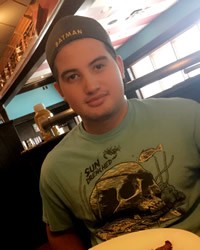Deaf in El Salvador

Photo Source:
Anonymous
|
Send Joshua Project a map of this people group.
|
| People Name: | Deaf |
| Country: | El Salvador |
| 10/40 Window: | No |
| Population: | 26,000 |
| World Population: | 27,508,450 |
| Primary Language: | Salvadoran Sign Language |
| Primary Religion: | Unknown |
| Christian Adherents: | 1.00 % |
| Evangelicals: | 0.00 % |
| Scripture: | Portions |
| Ministry Resources: | No |
| Jesus Film: | No |
| Audio Recordings: | No |
| People Cluster: | Deaf |
| Affinity Bloc: | Deaf |
| Progress Level: |
|
Introduction / History
In many situations, Deaf people are viewed as disability groups, but a more accurate approach is to consider them as distinct people groups. They have their own unique languages and culture.
Unlike most people groups, Deaf people can be found in every country in the world and often blend in with the broader community around them. That includes the Deaf in El Salvador.
What Are Their Lives Like?
The Deaf community of El Salvador indicates that they are composed of mainly three language groups: roughly 65% use Salvadoran Sign Language (LESSA), about 20% use a Salvadoran variety of American Sign. Deaf university graduates are now between 22 and 27 years of age. There are three Deaf associations in El Salvador. In response to past and present social oppression, the Deaf community is very engaged in struggles for equal access to information, employment, and social and civil rights.
Language (ASL) (either mixed with LESSA or following Spanish word order), and 10% use a combination of Costa Rican Sign Language (LESCO) and LESSA. In addition, roughly 5% live in rural areas and may use home signs. Bilingualism among ASL and LESSA users is common. Generational Deaf families tend to use LESSA.
There are also various mainstream and alternative educational opportunities. A group of the Deaf indicated that the Deaf community's highest needs are: improved Deaf education, developed and expanded use of LESSA, and standardization and certification for the interpretation vocation.
Most Deaf Salvadorans work as low-paid laborers, although some are teachers or work with computers. The Deaf community has not historically had access to quality education (Caceres 2001); however, advocacy of the Deaf community and Deaf education has been slowly improving and expanding to serve more geographic areas over the last 15 years. Five public schools and one private school serve Deaf students exclusively.
What Are Their Beliefs?
El Salvador is largely Roman Catholic with an Evangelical minority. The Deaf attend mass and church services, but they only understand so much because of their special communication needs.
What Are Their Needs?
The Bible in Spanish is largely inaccessible to most Deaf Salvadorans because of low Spanish literacy levels. A team from San Salvador is currently working toward a LESSA Bible translation. Deaf people congregate at a variety of Catholic or Evangelical Christian churches and Jehovah's Witness Kingdom Halls, where services are translated through an interpreter. There are two Deaf congregations which conduct services in Salvadoran variety ASL.
Prayer Points
Pray for the Lord to pave the way for the spiritual needs of the Deaf in El Salvador.
Pray for the Lord to reach the Deaf in El Salvador through dreams and visions.
Pray for him to raise up loving Christians to work in Deaf schools.